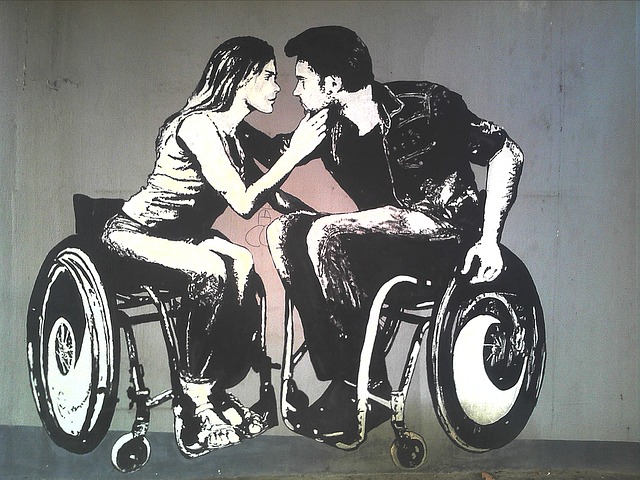When people open up your much-loved book, you want their focus to be on the arc of the storyline and the developed, relatable characters. If, however, you have a disabled reader who, desperate to feel a rare sense of recognition with a character with a disability, instead cringes at the way you treat or describe them, this will ruin their enjoyment of your book and could lead to negative reviews.
Similarly, those writing non-fiction, especially the many manuscripts coming out about issues of equality and feminism, can find that they often address multiple areas of oppression but can overlook disability if they do not have direct experience of disablism and inaccessibility. When you are writing about social justice, people are even more disappointed or angry when their experiences are missed out.
It could leave you wishing you hadn’t bothered to even try to introduce diverse characters or explore the issues around structural discrimination. What’s the point if you’re only going to get criticised, right?
Ask a specialist with long-term, lived experience of living as a minority or part of an oppressed group, who also has a solid professional background in editing to read through your book and provide feedback. The notes I send back to authors are open and encouraging but they are also realistic and honest. The way you have treated your minority groups or characters (in this case, disability, but I also offer LGBTQIA Sensitivity Reader services, too) in your books has a direct influence on readers’ views of your work; disability sensitivity reading can help you to avoid any awkward faux pas or mistakes in the way you present people and issues.
This can mean your book launch will also go much more smoothly and the reviews you get will improve.
You may have one disabled character, or a major or minor storyline that may be about disability issues. In both cases, a disability Sensitivity Reader can help you to develop your manuscript so that it is good as it can be.
Equally, you may be writing non-fiction. One non-fiction book I did a disability and LGBTQIA sensitivity read for is Women Don’t Owe You Pretty by Florence Given. I was able to offer direct and practical suggestions to make sure that her work was as inclusive and representative as possible.
Do you represent every disabled person, ever?
It would be misleading to claim to have insider knowledge and lived experience of cerebral palsy, muscular dystrophy, schizophrenia, blindness, and traumatic brain injury, because that would be untrue. I can’t have every health condition, use every mobility device and have experience of every form of health-related bureaucracy in the world.
However, I am in a position where I can give authentic advice, which includes my own opinions but also gives an overview of other popular views within the disability community.
What I do have is:
- a broad-based understanding of a lot of issues of disability and health
- the ability to research, and research hard
- lived experience of a range of mental and physical impairments and conditions
- personal knowledge and experience of people with different disabilities, both common and rare
- experience doing communications work for a disability charity
- experience of proofreading and editing everything from CVs to full-length books and I even proofread tattoos, so I combine my disability knowledge with my professional knowledge of the writing and editing world (writing and editing is my full-time job)
That’s an enviable list for many writers, who are relieved that somebody ticks all of their boxes!
Does a disability Diversity Reader also edit for race, LGBTQIA+ issues, class issues, etc.?
No. While I am a disabled woman and I am LGBTQ, I am also white and would never be able to do a good enough job representing women of colour. Even trying to do so would act as a disservice to everybody.
This is why hiring a handful of sensitivity readers can be the best way forward for many authors who want to double-check the relevant issues for each marginalised group.
It is also worth pointing out that sensitivity reading does not preclude the need for an overall editor and a proofreader, each of whom have distinct and important roles to play. If you are also looking for line-by-line proofreading services, I am happy to combine that work for an additional fee.
My fees for Disability Sensitivity Editing services start at £13 per 1000 words. If you have characters who are LGBTQIA+ or you are exploring issues around sexuality and gender identity and would like to add LGBT Sensitivity Editing to the package, the price for the two together would start at £17 per 1000 words.
If you would like to hire me, or have a chat about how I can help you to develop your work, please get in touch. I would love to hear from you.
Recent work includes
- A disability sensitivity read on a feminist non-fiction book
- A disability sensitivity read on a fantasy novel
- A disability sensitivity read on a graphic novel

